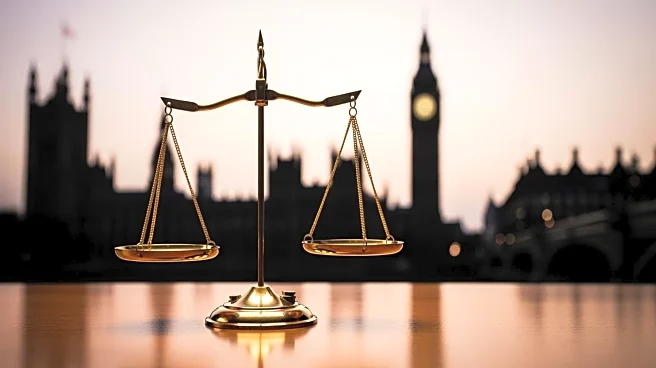What's Happening?
The United Kingdom is grappling with significant economic challenges, including stagnant real wages, slow growth, and deteriorating public services. These issues have led to widespread dissatisfaction
and a decline in economic optimism, reaching levels lower than during the 1978 'winter of discontent', the 2008 financial crisis, and the COVID-19 pandemic. Despite these challenges, the UK remains the sixth largest economy globally, with strong financial services and higher education sectors. The wealth gap between London and other regions is notably large, surpassing disparities in countries like Germany and Italy.
Why It's Important?
The economic challenges facing the UK have significant implications for its political landscape and social stability. The dissatisfaction with economic conditions has fueled the rise of far-right movements, posing a threat to traditional political parties. The economic disparities and public service issues could lead to increased social unrest and political instability. Addressing these challenges is crucial for maintaining the UK's economic position and ensuring social cohesion.
What's Next?
The UK government, led by Prime Minister Keir Starmer, faces pressure to implement reforms to address these economic challenges. Potential measures include reforms to planning laws, social care systems, and tax policies to stimulate growth and improve public services. The government's ability to effectively address these issues will be critical in regaining public trust and stabilizing the political environment.
Beyond the Headlines
The economic challenges in the UK highlight broader issues of inequality and the need for comprehensive policy reforms. The situation underscores the importance of addressing regional disparities and investing in public services to ensure long-term economic stability and social cohesion.










